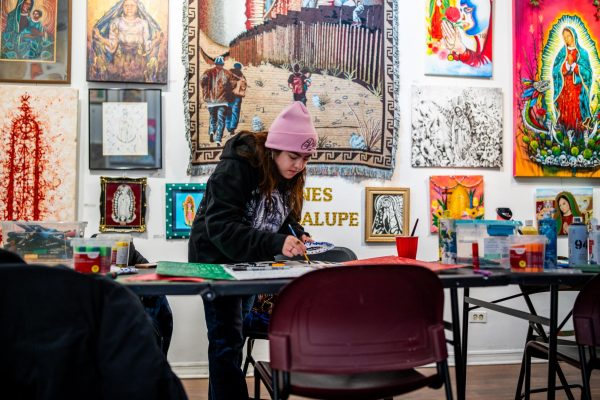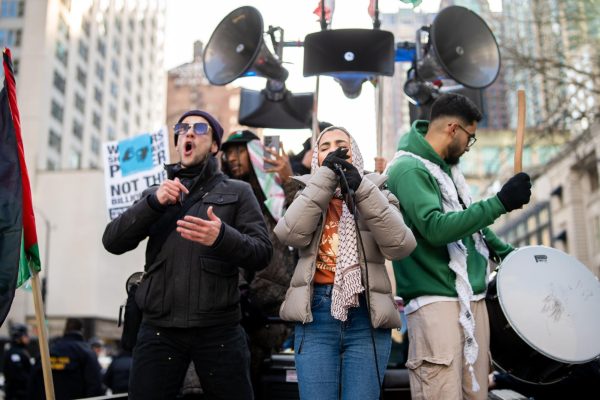Opinion: Chicago needs to decriminalize sex work
February 9, 2023

SEX ISSUE
Chicago’s response to sex work unfairly targets people who are often already in vulnerable groups. Whether it be women, people of color, immigrants or low-income individuals, the current law system that criminalizes prostitution only causes involved parties harm.
In 2017, the Chicago Police Department arrested 734 people for prostitution-related offenses. Of those, 91% of the arrests were sellers or the sex workers themselves. Just 8% were buyers, and less than 1% were the pimps connecting them.
“The laws that we currently have make it a lot easier for police to use biases and [unregulated] practices to criminalize this group of people,” said Logan Sweeney, a Chicago law clerk who wrote about the decriminalization of sex work in 2021 while a student at Loyola University Chicago School of Law.
Her research found that the criminalization of sex work disproportionately harms LGBTQ+ people, particularly transgender women, as well as people of color and immigrants.
In 2018, the Chicago City Council passed a prostitution-loitering law stating that police should order people they “believe” are engaged in prostitution-related loitering to leave the area instead of arresting them outright.
If they return within an eight-hour period they may be arrested, given a fine between $50 and $500 or imprisoned for up to six months for the first offense, and then face a minimum five-day sentence in jail for a reoccurring offense.
The law makes assumptions of someone’s criminal activity and can lead to prejudiced police action; despite the law’s dispersal orders, arrests are still taking place.
Chicago’s Gang Congregation Ordinance, which allowed officers to arrest anyone they presumed to be a member of a gang, was struck down by the U.S. Supreme Court in 1999 for being just as vague. This vagueness led to police unfairly targeting certain groups of people, similarly to the prostitution-loitering law. The prostitution-loitering law should face the same fate.
Sweeney fears the prostitution-loitering law will continue to lead to prejudiced assumptions made by police.
For years, sex work advocates have been calling for the decriminalization of sex work.
A 2020 study by the American Civil Liberties Union found the criminalization of sex work increases the risk of violence and threatens the safety of sex workers. The study found “in heavily policed, criminalized contexts, sex workers are often physically or sexually coerced by police through threat of detention, violence (including rape), or extortion.”
Yet, Chicago has no plans to decriminalize sex work.
Sweeney said decriminalization should look like “taking away every single penalty, every single regulation, every single authority that allows the police to get involved in these people’s lives.”
Chicago needs to decriminalize sex work to decrease violence and improve the lives of sex workers and put an end to prejudiced police action. The stigmatization of sex work will only worsen with these arrests and threats to sex workers.
Arresting people and issuing fines will not stop people from buying and selling sex. It will create more violence, create more barriers to improvements in people’s lives and keep people in poverty.
Editor’s Note: This story is a part of the Chronicle’s annual Sex Issue which will be published mid-February.







